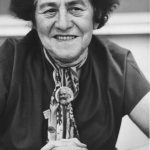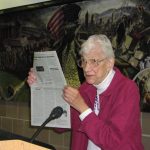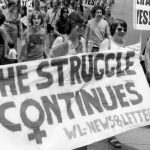Ad for the Raya Dunayevskaya Collection showing just a few examples of the many entries and correspondence relating to women’s relationships to revolution that can be found there.


Ad for the Raya Dunayevskaya Collection showing just a few examples of the many entries and correspondence relating to women’s relationships to revolution that can be found there.

The world has lost a great fighter for liberation. Olga Domanski, one of the founders of News and Letters Committees, whose life’s work was the development and projection of Marxist-Humanism and the growth of its organizational expression.

An in memoriam to Olga Domanski from a women’s liberationist’s point of view.

The world has lost a great fighter for liberation. Olga Domanski, one of the founders of News and Letters Committees, whose life’s work was the development and projection of Marxist-Humanism and the growth of its organizational expression.
To highlight the new online availability of the Raya Dunayevskaya Collection, we present excerpts of her 1985 Marxist-Humanist Perspectives, which take up the development of the Marxist-Humanist concept of Archives out of the category made of the totality of Marx’s Archives as a new beginning for today.

She’s Beautiful When She’s Angry is a documentary of the women’s liberation movement (WLM) in the U.S., from the late 1960s to the early 1970s. Filmmaker Mary Dore used a wealth of historical news coverage to give a sense of the breadth of organizations and depth of demands in the explosive growth of the WLM. Activists, identified within archival footage—including women like Fran Beal of the Civil Rights Movement’s Student Nonviolent Coordinating Committee, Lesbian rights activist Karla Jay, and Judith Arcana of the abortion underground organization Jane—gave contemporary interviews interspersed in the film.